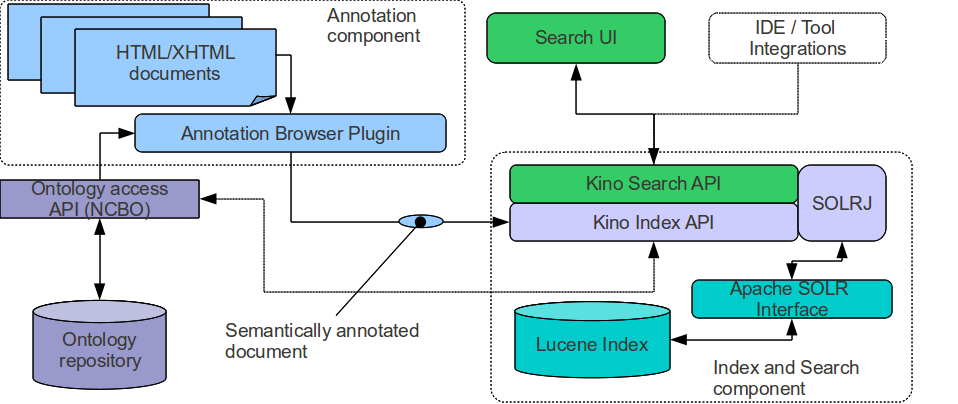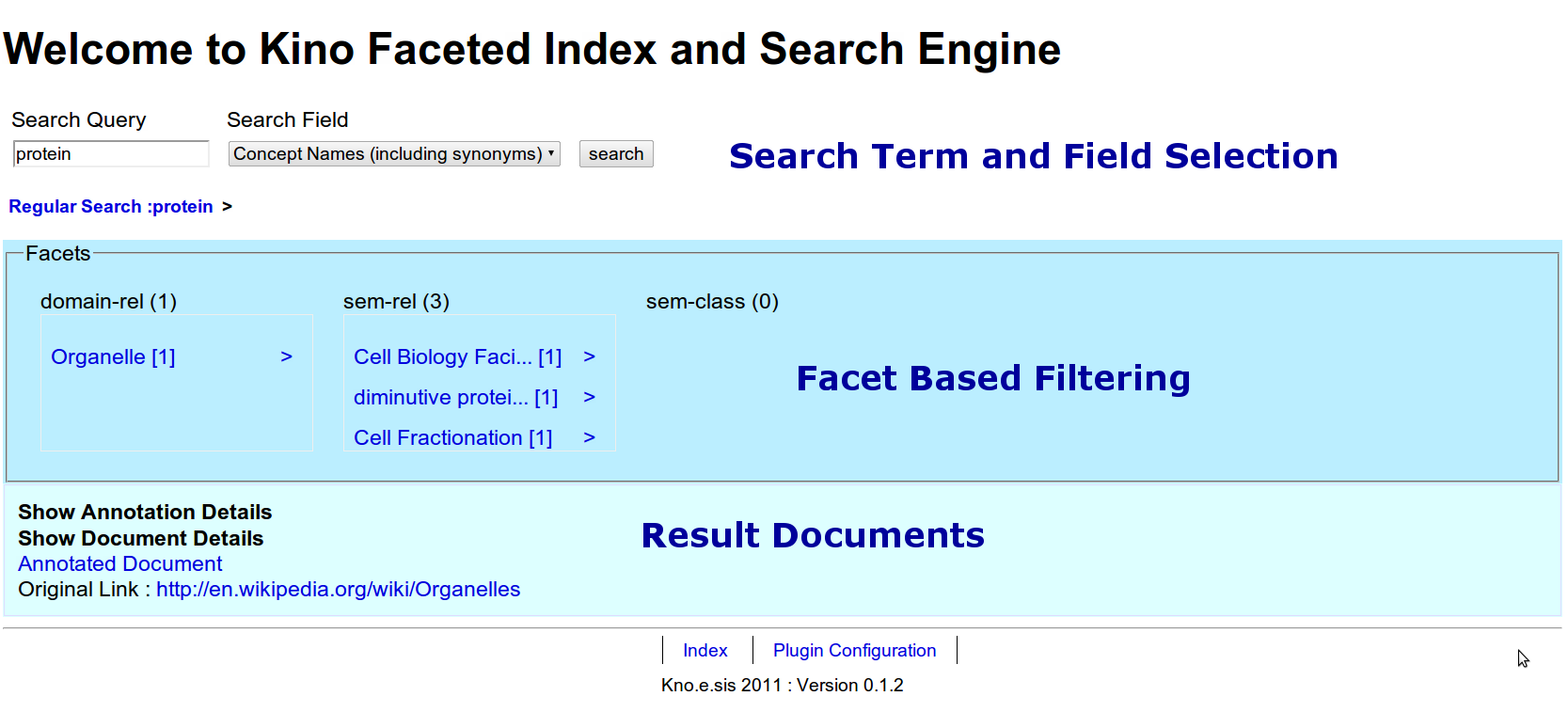Kino
Contents
[hide]Video Demonstration
Kino under 2 minutes
Kino detailed video demo
Kino Index Manager
Following is a quick 'FAQ' style documentation on Kino.
What is it?
In a nutshell Kino is a search engine. However this one does not crawl everything like Google but accepts documents via a special interface. Inside the index, the documents are faceted using annotations present in the page. There is a separate tool called the SA-REST Annotator (hopefully we can make more in the near future) that helps you to put these annotations and submit pages to the index.
APIHut, predecessor of Kino, was originally conceived as a faceted search/indexing set up for services. However the core technology in APIHut is applicable to a wider range of pages and hence we built it from scratch using Apache SOLR.
What technology does it use ?
Kino is a Java Servlet/JSP based Web application. It uses Apache SOLR via a the solrj client API. It is possible to write Kino in a different language / framework (say PHP) using the SOLR RESTful API.
How can I Install it ?
Take a look at the Kino Installation Guide for details.
Publications
- Kino : A Generic Document Management System for Biologists Using SA-REST and Faceted Search by Ajith Ranabahu, Priti Parikh, Maryam Panahiazar, Amit Sheth and Flora Logan-Klumpler at the Fifth IEEE International Conference on Semantic Computing (ICSC) 2011
other relevant publications ?
- SA-REST is a W3C member submission and specifies the annotation scheme.
- A Faceted Classification Based Approach to Search and Rank Web APIs is the key paper that discusses the use of facets in RESTful service classification.
Acknowledgement
This work is supported by NIH R01 Grant #1R01HL087795-01A1.
Files and Others
Download Source
Kino has not made any public releases. For now get the code from the SVN. See Sourceforge Kino SVN page.
Report Issues
NCBO Integration
National Center for Biomedical Ontolgy(NCBO) is an independent body that hosts ontology resources. As mentioned in their about page, .The goal of the National Center for Biomedical Ontology is to support biomedical researchers in their knowledge-intensive work, by providing online tools and a Web portal enabling them to access, review, and integrate disparate ontological resources in all aspects of biomedical investigation and clinical practice.
Why is NCBO Integrated to Kino ?
NCBO provides an API to search and browse the ontology resources. Kino makes use of the NCBO APIs to enhance the index. For example when a concept from NCBO is used in annotation, we can look for synonyms of the term of interest and index them as well.
To whom is the NCBO edition useful ?
Its primarily for the use of bioinformaticians.
Architecture of the NCBO Integrated version
The following image illustrates the architecture of Kino, illustrating the use of the NCBO API.
User Interface
The current search UI is illustrated below. Note the pointers that indicate the parts of the UI
Connecting the Browser Plugin
There are three steps to connect the browser plugin
- Copy the plugin url from the Kino application. Navigate to the Plugin Configuration page from the main page and you should see a url like the following
http://localhost:8080/kino-index-manager/update
- Go to the plugin config window from your browser. This is usually Tools > Add-ons > Extensions
- Change the value in the server URL box and close.

